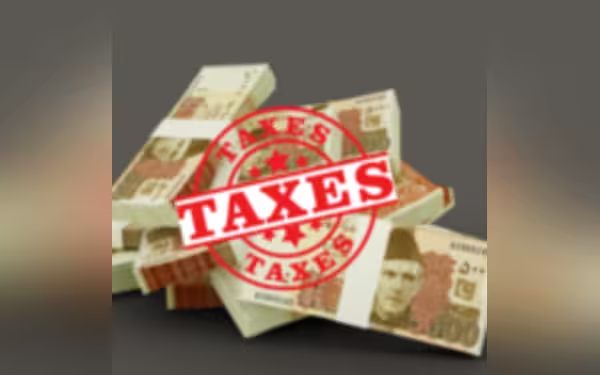Saturday, November 16, 2024 07:34 PM
FBR Reports 62% Sales Tax Revenue from 15 Key Sectors
- Electricity sector contributes 22.5% of sales tax revenue.
- Sugar sector shows 28.5% growth in sales tax collection.
- Overall net FED collection increased by 56.1%.
 Image Credits: pakistantoday
Image Credits: pakistantodayFBR reveals over 62% of sales tax revenue comes from 15 sectors, highlighting key contributors like electricity and sugar.
In the fiscal year 2023-24, Pakistan's Federal Board of Revenue (FBR) has reported a remarkable statistic: over 62% of the country's domestic sales tax revenue was generated from just 15 key sectors. This highlights the significant role that certain industries play in the nation's economy. Among these sectors, electricity, petroleum products, sugar, cement, cigarettes, and cotton yarn emerged as the largest contributors to the sales tax revenue.
Leading the charge is the electricity sector, which alone contributed a staggering 22.5% of the total domestic sales tax. This increase can be attributed to rising power tariffs, which have seen sales tax collection from electricity soar to Rs364.66 billion in 2023-24. This figure marks a substantial rise from Rs223.22 billion collected in the previous year, showcasing a notable 22.5% increase.
On the other hand, the petroleum products sector experienced a decline, contributing only 9% to the total sales tax revenue, down from 11.9% last year. The FBR reported that Rs145.35 billion was collected from this sector, a decrease from Rs151.86 billion in 2022-23. This drop raises questions about the factors affecting the petroleum market and its implications for the economy.
In contrast, the sugar sector demonstrated impressive growth, generating Rs98 billion in sales tax, which is a remarkable 28.5% increase from Rs76 billion in the prior year. Similarly, the cigarette sector saw its sales tax revenue grow by an astonishing 64.3%, reaching Rs60.66 billion. The Federal Excise Duty (FED) on cigarettes also rose significantly, climbing by 66.9% to Rs237.07 billion.
The cement industry also showed strong performance, with sales tax collections increasing by 59.5%, amounting to Rs66.62 billion in 2023-24 compared to Rs41.76 billion the previous year. Overall, the FBR reported a 56.1% increase in net FED collection, which reached Rs577.4 billion, up from Rs369.9 billion in 2022-23. The share of FED in total tax collection rose to 6.2% from 5.2%, with major contributions coming from cigarettes, cement, beverage concentrates, and air travel.
It is noteworthy that most major sectors recorded growth in FED revenue, with the exception of concentrates and motor cars. This trend indicates a shifting landscape in the taxation of various industries, reflecting broader economic changes.
The FBR's report underscores the importance of these key sectors in driving Pakistan's economy. As the government continues to rely on these industries for revenue generation, it is crucial for policymakers to consider the implications of these trends. Understanding the dynamics of these sectors can help in formulating strategies that not only enhance revenue but also promote sustainable economic growth. The data serves as a reminder of the interconnectedness of various industries and their collective impact on the nation's financial health.













